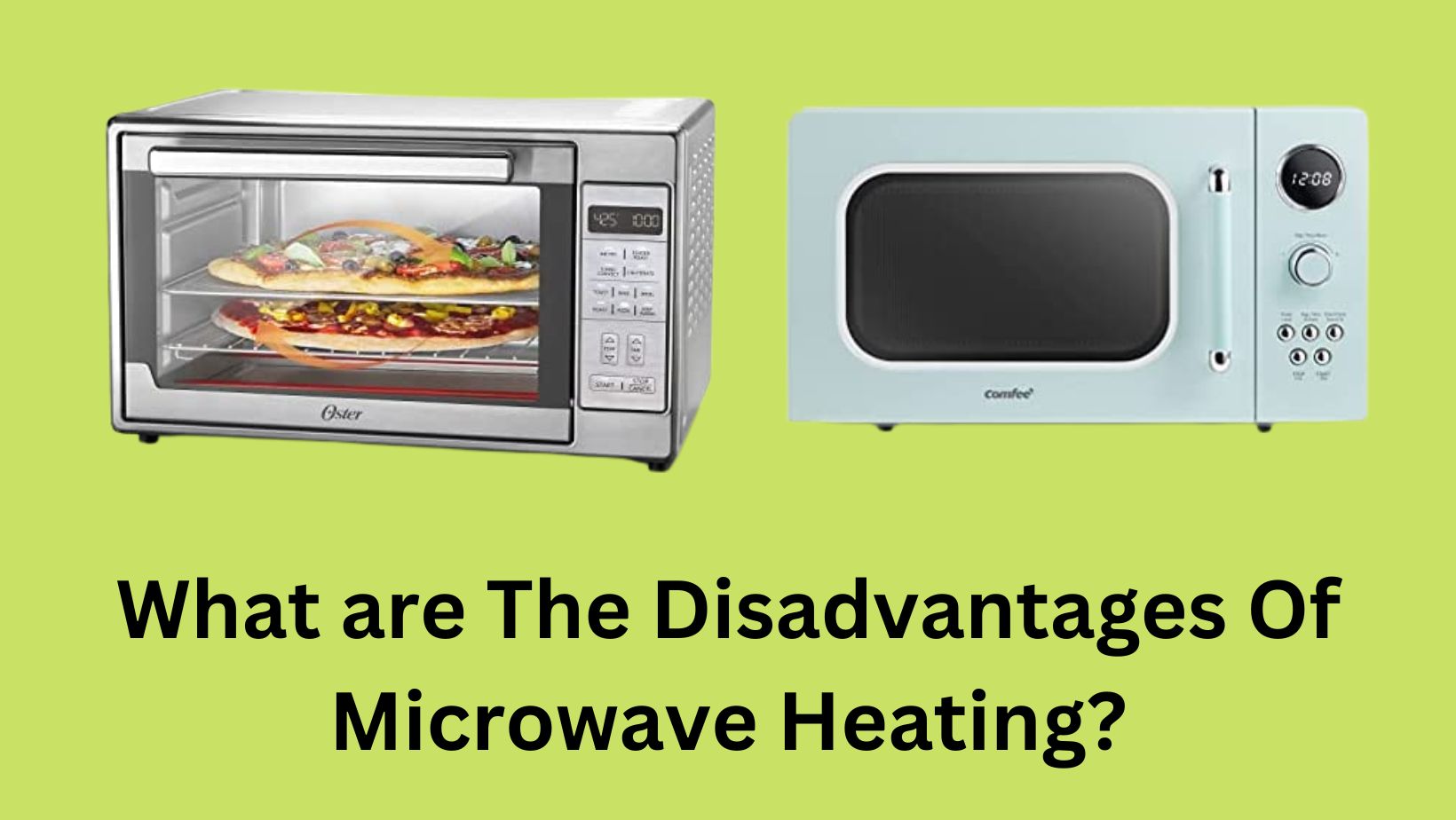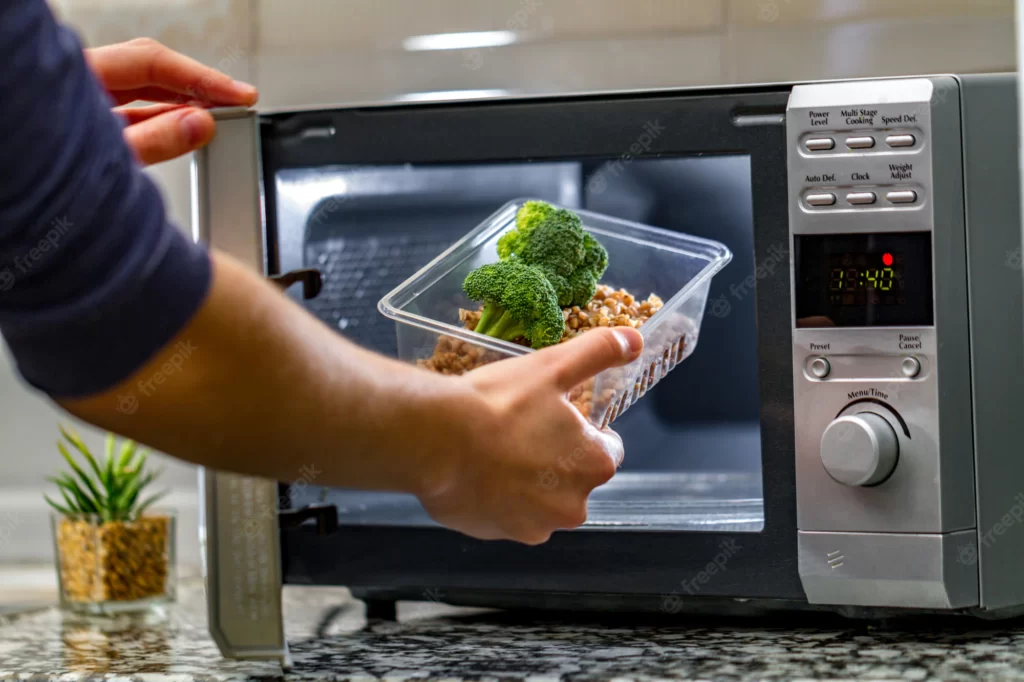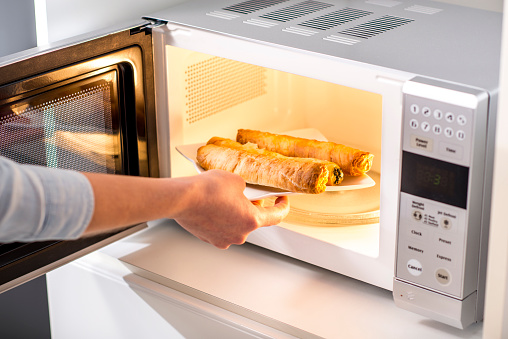What are The Disadvantages Of Microwave Heating?

Dear reader, if you purchase through links on our site, we may earn a small affiliate commission to help support the blog - at no extra cost to you. And it never influences our product selection process. Thank you!
Microwave heating can be a convenient and fast way to heat up food. However, there are several disadvantages to using microwave heating that should be considered before you decide to use it on a regular basis.
One major disadvantage of microwave heating is the potential for unevenly heated food. Due to the nature of microwaves, they tend to heat things unevenly, resulting in cold spots and hot spots that could potentially cause burns or other dangers if not properly monitored. Additionally, some types of cookware may not be suitable for use in the microwave due to their material composition; plastic containers and foam trays release harmful toxins when heated in a microwave, making them unsafe for use as well.
Another issue with microwave heating is that it can actually cause the nutrients in food to be destroyed or broken down. While it may seem like a convenient way to quickly heat up something, this method of heating strips out essential vitamins and minerals that your body needs for good health. This means that microwaving certain foods can make them less nutritious than if they were cooked through other methods such as steaming or boiling.
Finally, microwaved foods often have a different texture and flavor than their non-microwaved counterparts, which could affect how much you enjoy your meal. It is also more difficult to brown or caramelizes foods in the microwave, so dishes like grilled cheese sandwiches or roasted vegetables are not as tasty when made with this method.

Can the radiation harm you?
It’s important to note that microwave ovens are not completely risk-free. Some studies have linked microwaving food with the formation of cancer-causing substances
For example, one study found that chemicals called heterocyclic amines (HCAs) and polycyclic aromatic hydrocarbons (PAHs) formed when meat was microwaved
These chemicals are known to cause cancer in animals and may also increase the risk of cancer in humans.
However, these results were based on experiments done with plastic containers, which shouldn’t be used in microwave ovens
When food is cooked properly in microwave-safe dishes, the risk of forming these substances is much lower
Besides, other cooking methods such as grilling and frying also produce HCAs and PAHs.
So overall, microwaving appears to be a safe and efficient way to cook your food. Just make sure you’re using proper cooking containers and avoiding any risk of overexposure to radiation.
Reduces the formation of harmful compounds
Microwaving may also reduce the formation of other potentially harmful compounds, such as acrylamide. This compound forms in starchy foods like potato chips and french fries when heated to a high temperature
Trusted Source.
One study found that microwaving reduced acrylamide formation in potatoes by up to 90% (8Trusted Source).
While microwaving may reduce the formation of potentially harmful compounds, it’s still important to pay attention to your portion sizes and maintain a balanced diet. Eating an excess of any type of food can lead to weight gain and other health issues.
Avoid plastic containers

Avoiding plastic containers in the microwave is important for your health and safety. Not only can plastic containers leach harmful chemicals into your food, but they can also become melting or be damaged when exposed to high heat.
When microwaving food, it is best to use glass or ceramic containers that are specifically labeled “microwave-safe.” These materials do not contain any hazardous chemicals and are much more capable of withstanding the heat of a microwave. Avoid putting plastic wrap or aluminum foil directly on top of food during microwaving as these items can also cause potential harm.
If you must use plastic containers in the microwave, make sure they are labeled with a “microwave-safe” symbol before using them. Avoid using any plastic containers with a recycling code of 3, 6, or 7 as these are made out of potentially hazardous materials. You should also avoid using any containers with a glossy or waxy coating, as these can melt in the microwave.
A microwave oven has a number of advantages:
Another advantage of microwave oven is that it cooks food with less fat, as compared to traditional cooking methods. It helps to reduce the amount of fat and oil needed for cooking. With microwave ovens, we can defrost food quickly without compromising the texture, color, and flavor of the food. Microwave ovens also help to reduce energy consumption. This is because the cooking time is much shorter than that of conventional methods and
the energy used for cooking food is much lower. Moreover, microwave ovens are easy to clean and maintain. Due to the small size of
the oven, it is easier to clean and store. Lastly, they are often more affordable than traditional ovens because of the short cooking time and low energy usage. In conclusion, microwave ovens have many advantages over traditional cooking methods due to their convenience, ease of cleaning and maintenance,
and energy-saving features. They are an invaluable tool for the modern kitchen. It is important to note, however, that microwave oven
s should be used with care and caution to ensure that food safety is maintained.
Which type of microwave oven is best?
Are you trying to find the right type of microwave oven for your kitchen? If so, don’t worry, you’re not alone! With all the different types available on the market today, it can be quite overwhelming to figure out which one is right for you. Which type of microwave oven is best?
The answer to this question depends on a few factors, such as your budget, desired features, and size. Popular types of microwaves include countertop models, over-the-range models, and built-in models. Each type has its own set of pros and cons that should be considered before making a purchase decision.
Countertop microwaves are the most common type among consumers due to their low cost and convenience. These models are typically small in size and can easily fit on any kitchen countertop. They offer basic features such as reheating and defrosting, and some models even come with extra features such as a convection oven or a grill.
Final thought
The biggest downside of microwave heating is that it can be dangerous. If a container is not designed for use with microwaves, the heat may cause it to melt or explode, leading to potential injury or burns. Additionally, microwaves are not able to provide an even distribution of heat throughout the object being heated, meaning that cold spots may exist which could lead to uneven cooking. Finally, due to their limited energy output and small size, microwaves are not capable of producing the intense heat levels required for certain types of cooking such as grilling or baking. Therefore, they cannot replace conventional ovens in most kitchen applications.
FAQs
What Are The Potential Health Risks Associated With Microwave Heating?
There are several potential health risks associated with microwave heating, including radiation exposure and changes in the nutritional value of food. Microwave radiation can damage human cells and increase the risk of cancer.
Is microwave-heated food less nutritious than other methods of cooking?
Yes, microwave-heated food is generally less nutritious than other methods of cooking. This is because microwave heating can cause a breakdown of vitamins, minerals, and other nutrients in the food. Research has also shown that cooking with microwaves can reduce antioxidant levels in certain foods.
Does microwave heating destroy certain vitamins, minerals, and other beneficial compounds found in food?
Yes, microwave heating can destroy certain vitamins, minerals, and other beneficial compounds found in food. This is because the energy from microwaves can cause a breakdown of some nutrients in food.
Are there any safety issues related to using a microwave oven?
Yes, there are some safety issues related to the use of a microwave oven. It is important to carefully follow the instruction manual for the particular model of microwave oven. There is also the potential for radiation exposure, so it is important to stand at least a few feet away from the oven when it is in use.
Could radiation from a microwave oven cause cancer or other illnesses?
It is possible that radiation from a microwave oven could lead to cancer or other illnesses. However, research studies have not found any clear evidence to suggest that this is the case. It is important to remember to follow the instructions for use of your microwave oven and to stand at least a few feet away while it is in use. This will help to reduce any potential risks from radiation exposure.
Is it possible for foods cooked in a microwave to be contaminated by radiation exposure?
It is theoretically possible for foods cooked in a microwave to be contaminated by radiation exposure, however this is highly unlikely. The walls of a microwave oven are designed to contain the radiation within, and food cooked in a microwave will only be exposed to very low levels of radiation that are not considered to be hazardous. It is important to keep the microwave oven clean and in good working condition to reduce any potential risk of contamination.
How much energy is needed to heat up food using a microwave compared to traditional cooking methods?
Generally, microwaves require less energy than traditional cooking methods. Microwave ovens are much more efficient at converting electricity into heat compared to traditional methods such as stovetops or ovens. Microwaves also tend to cook food faster, resulting in less energy usage overall.
- Kitchen Knives - May 3, 2024
- Top 10 Best kitchen egg cooker [High Quality] - May 3, 2024
- Top 10 Best cutting boards for kitchen [High Quality] - May 1, 2024
